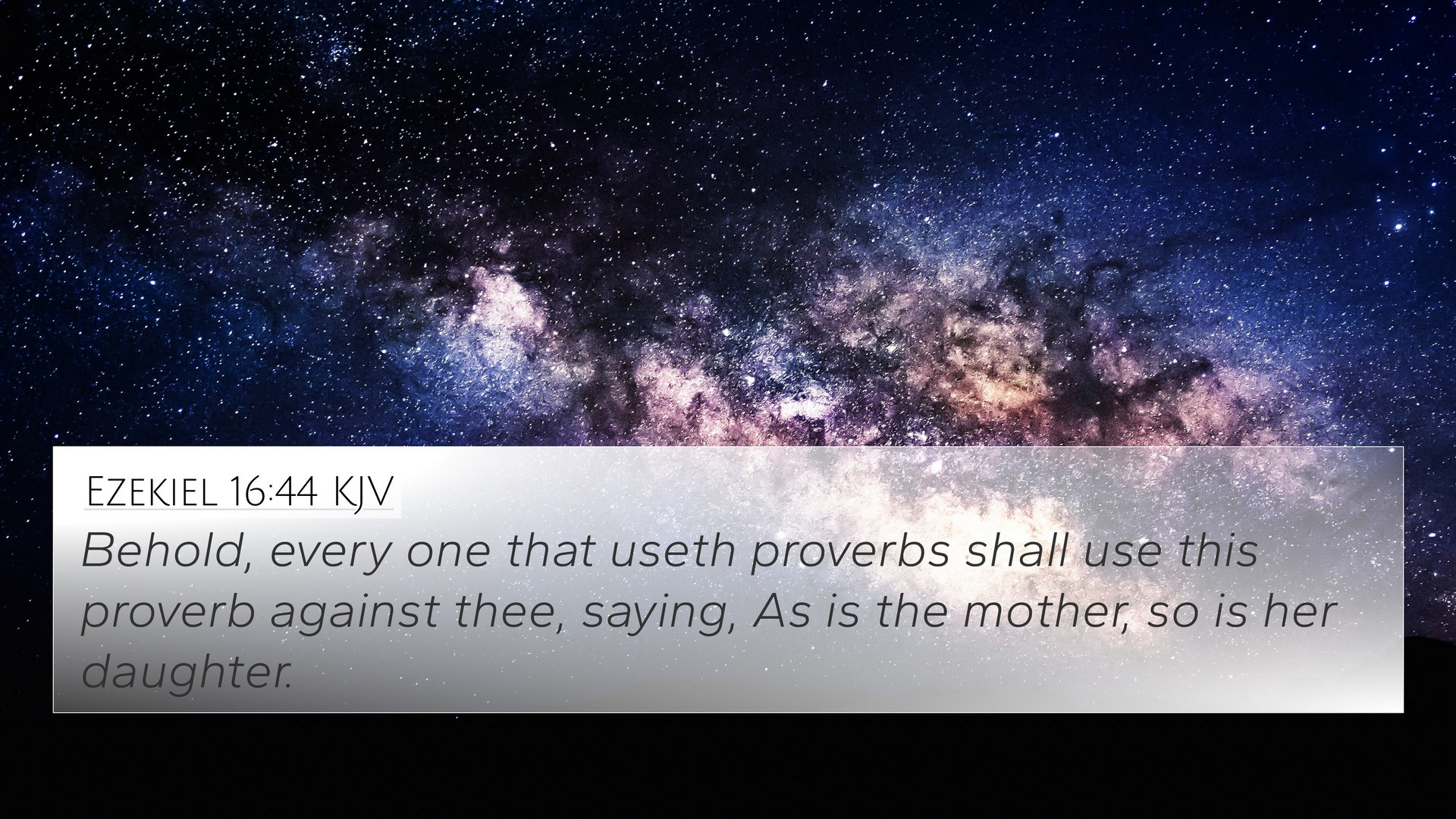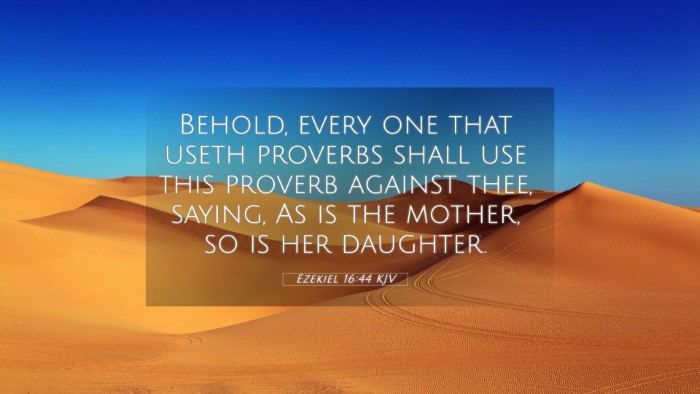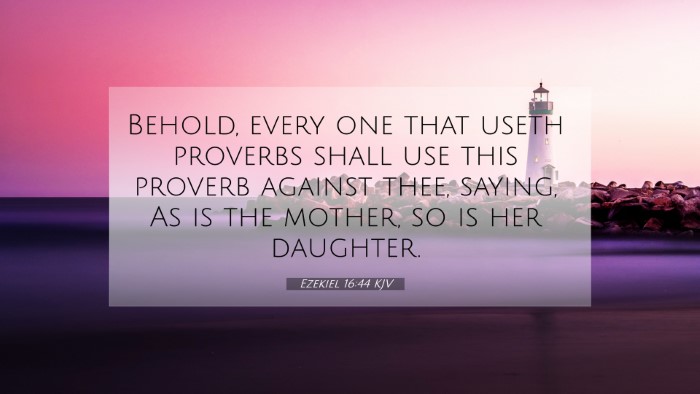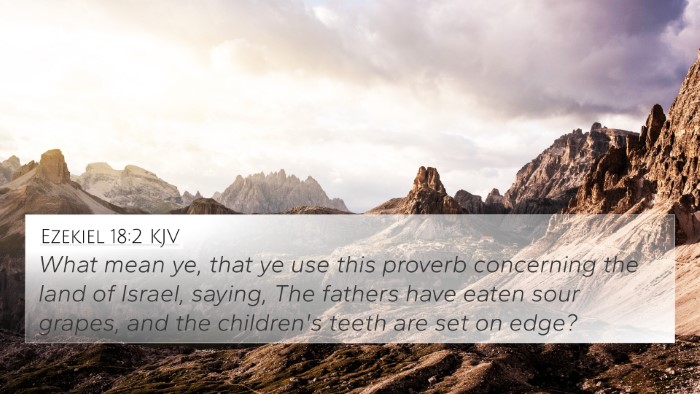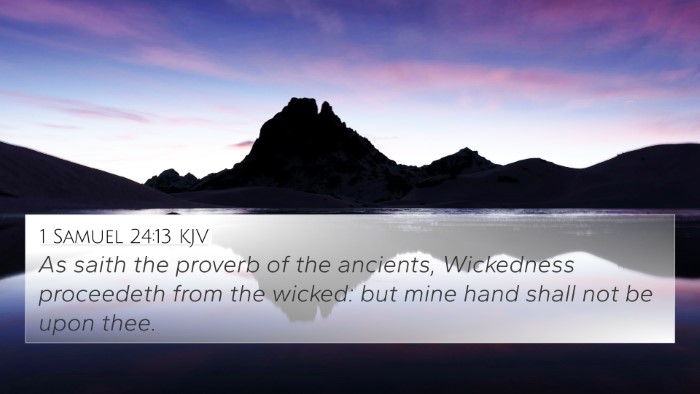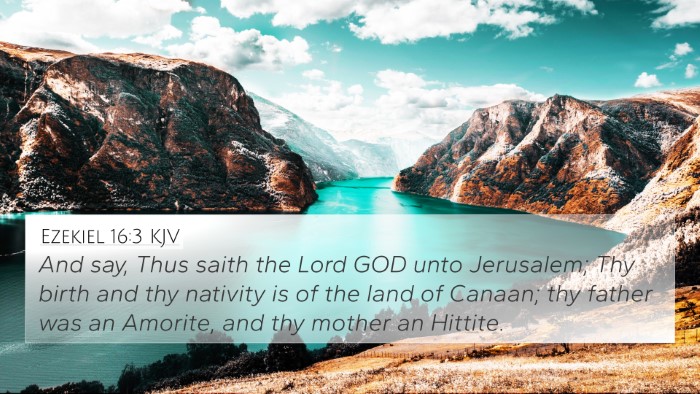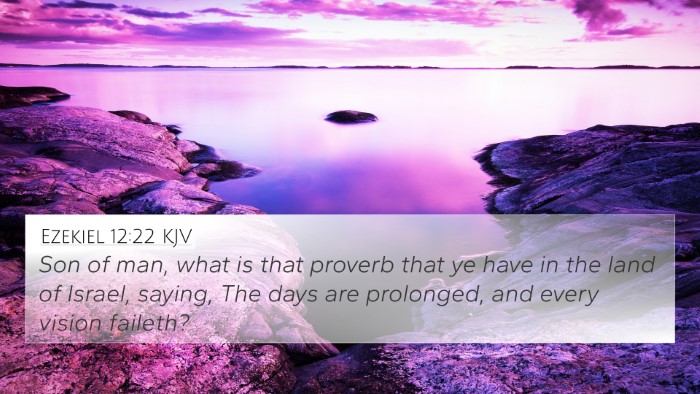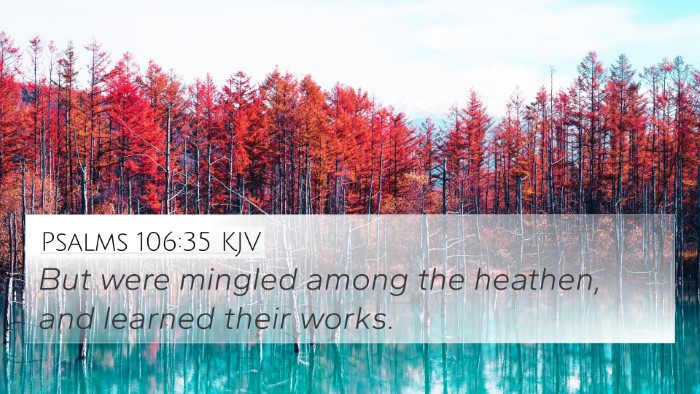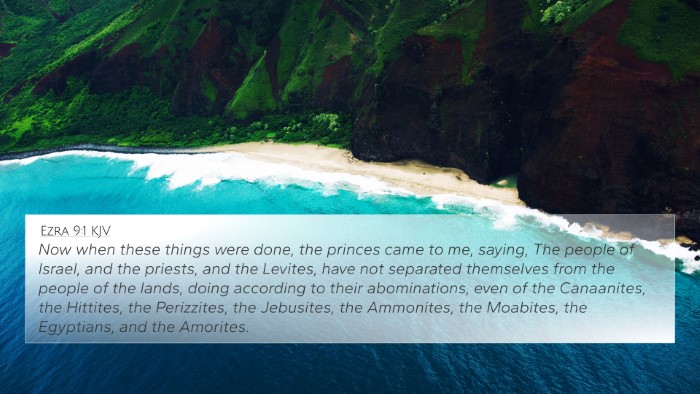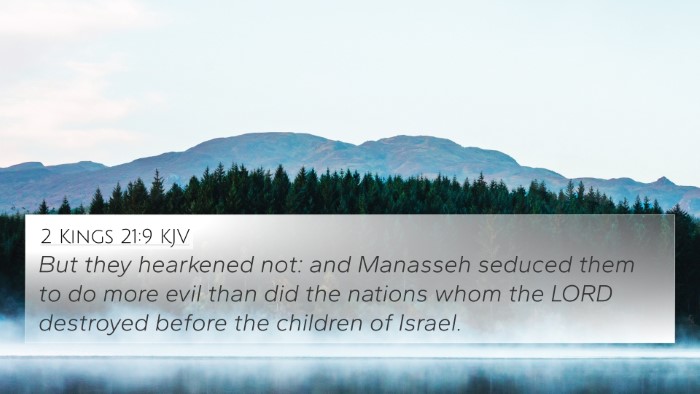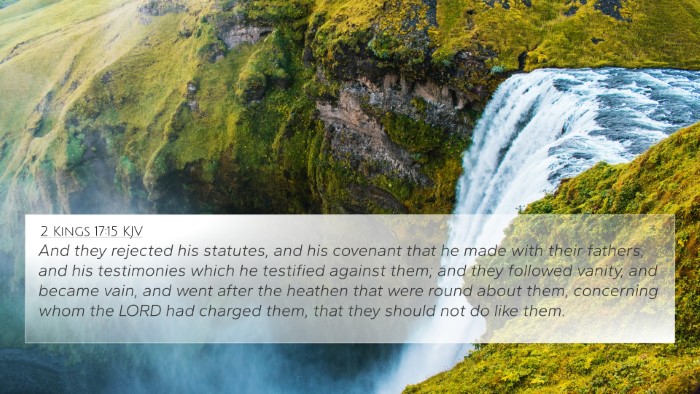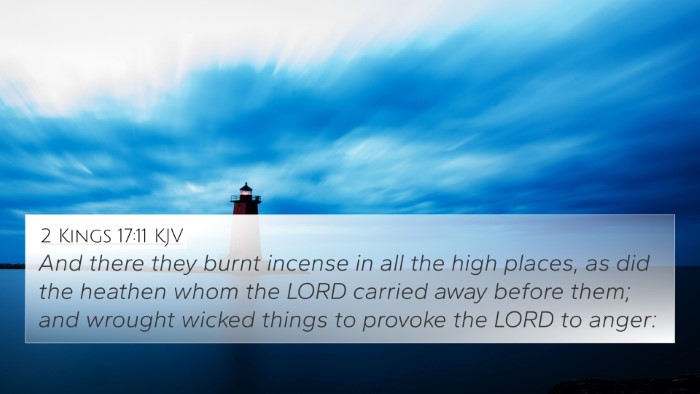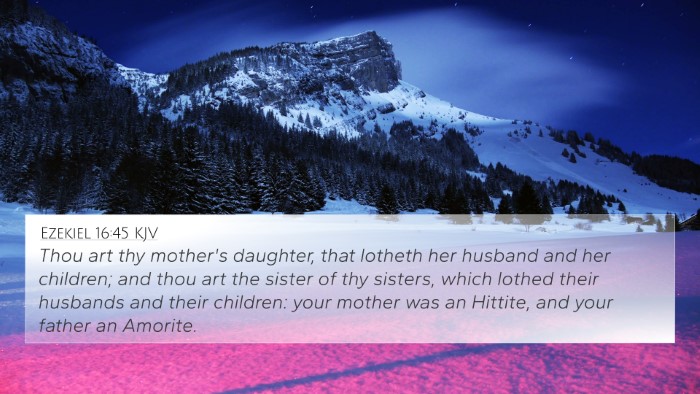Ezekiel 16:44: Summary of Meaning and Interpretation
Ezekiel 16:44 states, "Behold, everyone that useth proverbs shall use this proverb against thee, saying, As is the mother, so is her daughter." This verse carries significant theological implications and is rooted in a broader narrative within the Book of Ezekiel. The imagery used here reflects the relationship between a mother and her daughter, symbolizing the connection between the people of Israel and their leaders, as well as the consequences of their actions and behaviors.
Contextual Background
The Book of Ezekiel, a work attributed to the prophet Ezekiel, is rich in metaphor and symbol, often reflecting the dire state of Israel's unfaithfulness to God. Throughout Ezekiel, there are recurring themes of judgment, restoration, and the covenant relationship between God and His people. Understandably, the verse in question encapsulates a judgmental proverb indicating the inevitable cyclical nature of sin and its repercussions—what is seen in one generation will often be replicated by the next.
Interpretations and Insights
- Matthew Henry's Commentary: Henry emphasizes that this proverb serves as a condemnation of the people of Jerusalem. It illustrates how the actions of the mother (the nation of Israel) are mirrored in her daughter (the inhabitants of Jerusalem). This reflection drives home the moral and spiritual failure of the people.
- Albert Barnes' Notes: Barnes highlights the inevitability of the proverb's use against Israel. Each generation’s behavior likely influences the next, thus indicating that Israel's sins have not only persisted but have also escalated, leading to a deserved judgment.
- Adam Clarke's Commentary: Clarke digs deeper into the metaphor, asserting that the verse signifies Israel's failure to learn from its own history and the habits of previous generations. He points out the danger of repeating the same sinful patterns without repentance.
Cross-References and Thematic Connections
Several biblical texts relate thematically to Ezekiel 16:44, enhancing our understanding of its meaning and implications:
- Leviticus 26:39-40: Discusses the consequences of disobedience to God and the potential for repentance.
- Jeremiah 31:29-30: Warns about the fate of those who sin, indicating personal responsibility and the cyclical nature of sin.
- Matthew 23:37: Jesus laments over Jerusalem, indicating a continuation of Israel's rebellion against God through generations.
- Proverbs 1:8-9: Advises children to heed their parents’ teachings, emphasizing the importance of legacy in moral teachings.
- Isaiah 1:2-3: Depicts Israel as a rebellious nation that does not understand its own condition, mirroring the sentiments in Ezekiel.
- Ephesians 6:4: Talks about parental responsibility, reminding readers that the upbringing of children influences their paths.
- 2 Kings 21:6: Illustrates the wicked acts of previous leaders and their impacts on the nation, affirming the proverb's implication of generational sin.
- Romans 5:12: Discusses sin entering the world through one man, indicating the inherited nature of sinfulness.
- Galatians 6:7: Warns that one reaps what one sows, echoing the theme of consequences of actions in generations.
- Exodus 20:5-6: Mentions the impact of sin on subsequent generations and God's mercy toward those who love Him.
Conclusion
In summary, Ezekiel 16:44 serves as a poignant reminder of the correspondence between generations as seen through the lens of sin and moral decline. The thorough analysis of this verse reveals the dangers of inherited sins and the importance of acknowledging one's actions. As believers seek to understand the connections between different scriptures, they can draw valuable lessons about responsibility, repentance, and the need for a vital relationship with God, avoiding the entrapment of repeating the failures of the past.
